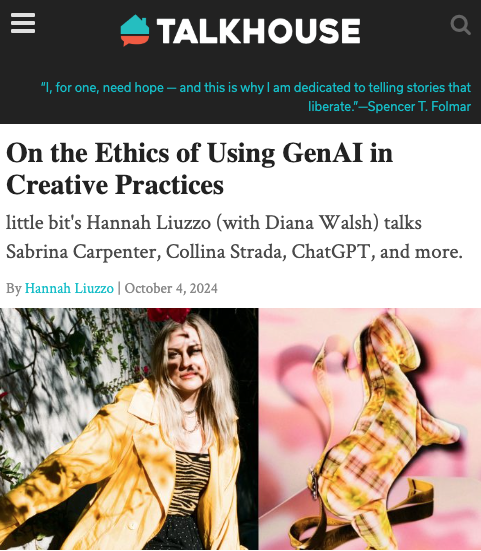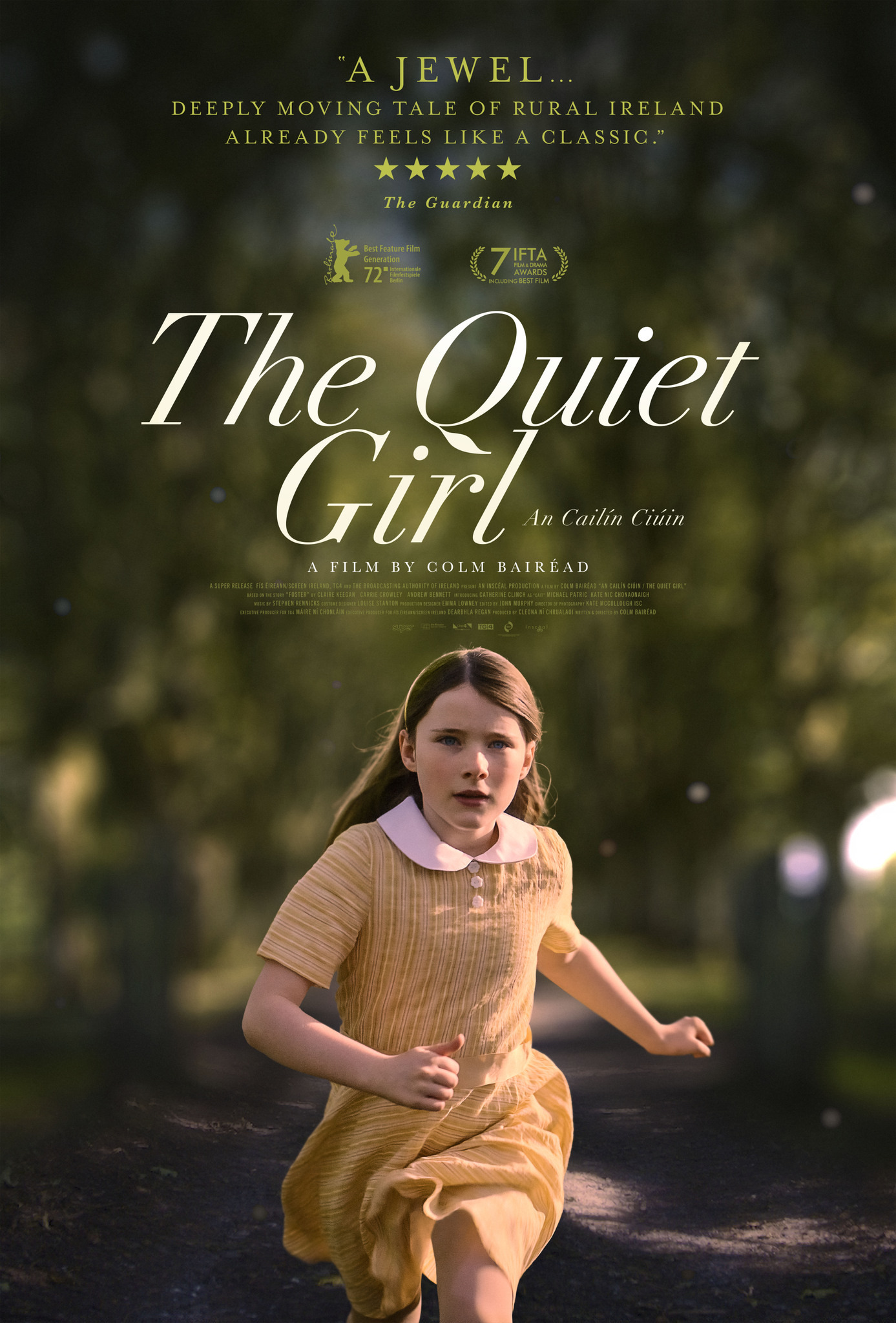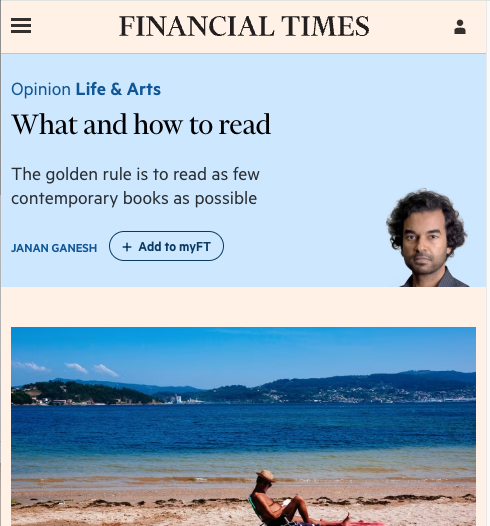Hannah Liuzzo of recent blog fave little bit writes an insightful piece for Talkhouse about AI’s role in creativity
Despite that pull quote, this is a serious piece of thinking and writing on AI’s role in art: in Talkhouse, Hannah Liuzzo (of very recent blog fave little bit) writes a well-researched and deeply-detailed essay titled On the Ethics of Using GenAI in Creative Practices.
It’s an incredible read:
Conversations among my professional peers in the marketing technology space render a consensus that AI is helping us achieve infinite growth by Doing More Faster — a familiar picture of corporate greed dressed in a Patagonia vest. However, these conversations with my peers in creator-artist spheres have returned a very different tone. In general, artists (and consumers of art) seem to not only object to AI, but to profess an undertone of deep anxiety, distaste, and condemnation.
It’s loaded with nuance and Liuzzo’s unique perspective.
I didn’t know about Espresso being three stock music loops in a trenchcoat, and I’d never heard of BAGGU before reading the piece. Those are two examples Liuzzo uses to point out the hypocrisy in many fo the criticisms levelled at AI usage:
In both the case of the production of “Espresso” and with Collina Strada’s BAGGU collaboration, it can be argued that, regardless of the shortcuts that were taken to get to the end product — regardless of the sacrifice required — the artist driving the outcome had to have a strong creative vision and a colorful inner life to be able to deliver the end product. Both teams utilized tools (aka techne aka art) to create their pieces, both teams repurposed and recycled existing bodies of work, yet one method was condemned, and the other, largely ignored and/or celebrated.
I have lots of my own thoughts and ideas to add, but I think that’ll be a post for next week. Consider this your assigned weekend reading. It sent me back to reading this piece by Ted Chiang (and the other ones that I linked in that post), and some other references that I’m going to dig into this weekend. Not sure if my thing will be worth reading, but at least if I post about it here, it’ll push me to actually write it.
More to come, but go read Liuzzo’s piece.






